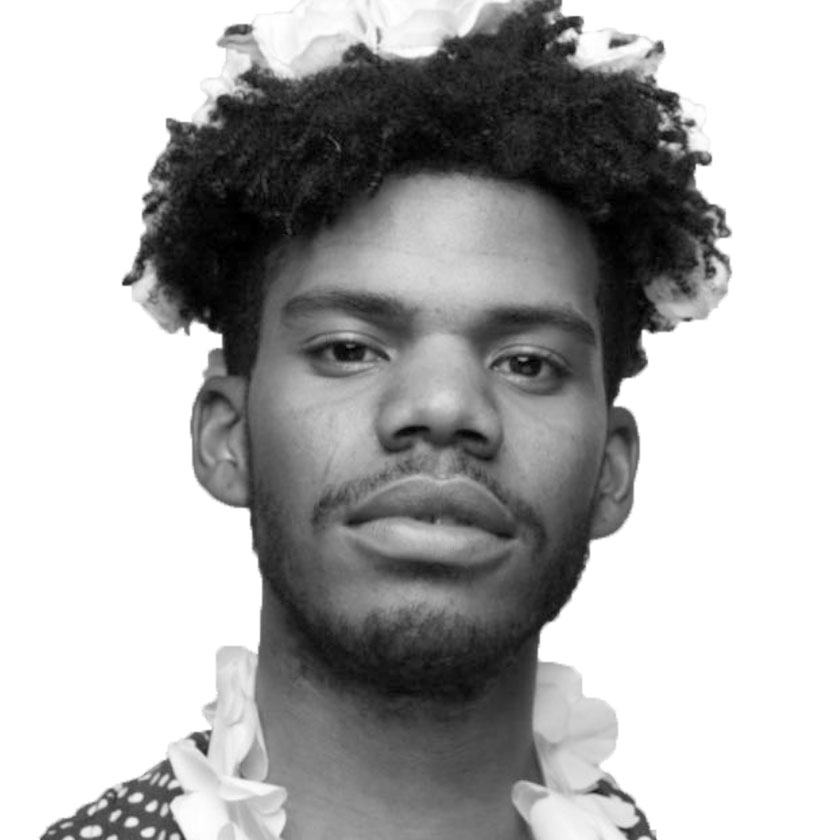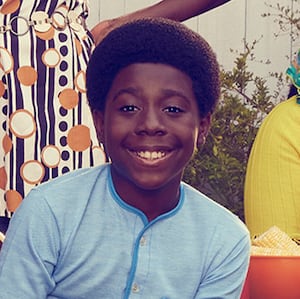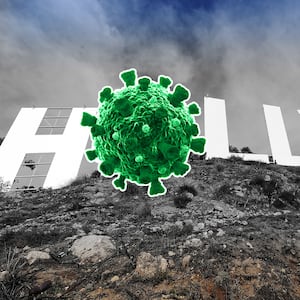The NBA is the most public collection of wealthy, personable, and influential Black men in the country. And each of those adjectives are on full display during an event like NBA Media Day. Before the start of training camp, each team and its stars, coaches, and executives are forced to participate in a ritual of spending five minutes dropping cliched lines about how once-lithe players put on 15 pounds of muscle during the off-season or teams with turnstiles for defenders want to step it up on that side of the court.
But at the heart of Monday’s NBA Media Day, and every conversation this off-season (or really, since the pandemic started) was how players and team officials would handle COVID-19, with this year’s iteration focused on just how many players were skipping out on getting vaccinated. The NBA hit a 90 percent vaccination rate, which means of the over 450 players in the league, about 50-60 unvaccinated players are planning to return to their teams as the season begins. This is a relatively low number of unvaccinated workers, especially compared to the other major sports leagues—the NFL sits at 93.5 percent, meaning about 200 unvaccinated players; the MLB is hovering around 85 percent, with 128 unvaccinated players; and the NHL is sitting at a cool 98 percent, with just under 20 unvaccinated players. So why, then, are the calls to both mandate the vaccine in the NBA and the heavy focus on these 60 players becoming so forceful?
All eyes were on Monday’s Media Day thanks to a Rolling Stone report by Matt Sullivan, author of a recent book on the revamped Brooklyn Nets called Can’t Knock the Hustle, on the ways that outspoken anti-vaxxers like Orlando Magic forward Jonathan Isaac and vaccine-skeptics like Nets guard Kyrie Irving or Warriors forward Andrew Wiggins were influencing the league to vote against COVID vaccine mandates. Sullivan knows Irving well—the NBA superstar is arguably the main character in his book if not its most sympathetic figure but, as hoop reporter Tom Ziller notes in his recent newsletter on the league’s handling of the vaccine, “it’s not entirely clear why” Irving has become a central figure in the vaccine conversation. Sullivan, in his article—which features a quote from Irving’s aunt, who helps run one of his foundations, calling Dr. Anthony Fauci “Dr. Falsey” and the fact that Irving liked a since-deleted anti-vax conspiracy theory video—has apparently fallen into a trap that he actively avoided in his book: reflecting the larger NBA media’s fascination with Kyrie as, rather simply, a contrarian.
ADVERTISEMENT
Kyrie has declined talking about the vaccine at all in public which places him squarely in the vaccine-skeptic camp, someone who has easy access to the vaccine but for whatever “personal reason” wants to keep his decision-making process private, which he is fully within his right to do. Other players, like Wizards star Bradley Beal, said the same. Sullivan notes that as far as a vaccine mandate goes, after a meeting between the NBA Players Association and the league, the idea is “a non-starter.” It’s easy to imagine the increased schisms that will develop—not necessarily between teammates, but between players and organizations. The Nets are a team that benefits from what hoopheads call the “player empowerment movement” (wherein superstars with outsize influence are exercising a lot more autonomy with a lot less team fidelity than generations past), featuring three megastars in Kevin Durant, James Harden, and Irving. Essentially, whatever they say goes.

Kevin Durant #7 and Kyrie Irving #11 of the Brooklyn Nets look on during the first half of Game Five of their Eastern Conference first-round playoff series against the Boston Celtics at Barclays Center on June 01, 2021 in the Brooklyn borough of New York City.
Sarah Stier/GettyLeBron James is the biggest of these superstars, and his vaccination status has always been a point of contention for the sports media. Just last March, writing in The Undefeated, Martenzie Johnson declared that James “outwardly stating that he received a vaccine, or planned to, would be the greatest thing he has ever done. Greater than any basket, any championship won, any school opened or voting rights campaign spearheaded.”
During the Lakers media day, the 36-year-old star finally disclosed that he had, indeed, received the jab. “I know that for me I can speak about myself,” James started. “I think everyone has their own choice to do what they feel is right for themselves and their family, and things of that nature. I know that I was very skeptical about it all, but after doing my research and things of that nature, I felt like it was best suited for not only me but for my family and for my friends, and that’s why I decided to do it.” When it came to stumping for the vaccine, however, James said, “it’s not my job,” explaining that compared to issues like “racism or police brutality” the vaccine isn’t “about something political.” And so, here LeBron was, “outwardly stating that he received a vaccine,” but unfortunately, it didn’t feel like “the greatest thing he has ever done.”
To be sure, there’s a ton more blame to go around. As Ziller points out, players should be held to the same standard as NBA coaches, referees, arena workers, trainers, and other below-the-line service workers who’ve all been mandated to take the vaccine. Refusing to demand that players get vaxxed speaks to the classist nature of the league, wherein the employees who make the most money are able to put the health of those that don’t at risk. But this problem isn’t nearly as exclusive to the NBA as sportsball fans and talking heads would like us to believe. Nor do the risks involved even compare to their entertainment-industry counterparts in Hollywood, where COVID breakouts of 30 or 40 people can destabilize a small town and the fight for workers’ health and safety hasn’t raised so much as an eyebrow from the general population.
Last December, The Daily Beast reported that 24 positive cases (11 from Young Sheldon and 13 from Lucifer) had been reported on Warner Bros. Television sets, in addition to 11 cases from the set of Netflix’s The Kominsky Method, nine more from Netflix offices, 23 from NBCUniversal and a whopping 45 from CBS. And still, there were “no formal limitations on production.” In one instance, the article mentions, the city of Los Angeles announced “plans to shut down a high-traffic COVID-19 testing site at Union Station in downtown Los Angeles for a day. Instead of testing the 504 Angelenos who had made appointments, the site would become the set for some 170 cast and crew members shooting a gender-swapped, She’s All That reboot” (the shoot would later be canceled following public outcry from local residents).
The same couldn’t be said for the “central command center for COVID-19 doctors and patients” that was initially planned to sit in the shuttered St. Vincent Medical Center, and ended up being shut down for two months when ABC rented out the facility to shoot the medical drama Triage.
After months of these kinds of outbreaks—where a few dozen workers, or, the equivalent of two NBA teams, were testing positive on a weekly basis—Hollywood studios and unions, which were supposedly testing regularly and practicing social distancing, came to an agreement to relax COVID safety protocols. The adjustments, which are set to last until Sept. 30, included allowing “studios to make it mandatory for all those on a given set to be vaccinated, to decrease the rate of regular COVID testing, and to loosen mask mandates in outdoor settings.” But whether producers actually exercise that option is left to their discretion. And if the reports about stars like Miles Teller, who refused the vaccine before testing positive while filming the Paramount+ show The Offer is any indication, enforcement still leaves much to be desired. Warner Bros., for instance, just had three new cases in the last week. The power discrepancy between a star like Teller and a relatively anonymous service worker is massive, and coincides with a labor fight that’s been quietly reverberating around Hollywood for a while now.
Unions representing artists of all stripes are in an ongoing battle with Hollywood studios for living wages and more equitable working conditions for below-the-line workers. Last week, the most influential entertainment unions issued a joint statement in solidarity with the International Alliance of Theatrical Stage Employees (IATSE) as the union moves toward voting for a strike. The statement, which was signed by leaders of SAG-AFTRA, the Directors Guild of America, the Teamsters, and the Writers Guild of America, East, comes, Variety reports, after “talks between the IATSE and the Alliance of Motion Picture and Producers have broken down. The union seeks improvements on meal and rest periods, longer turnarounds between production days, and improved rates on streaming projects.”
But you haven’t heard much about that fight, or the myriad ways film and TV stars who refuse to be vaccinated are putting a lot more people in danger than any NBA player. The league, rightfully or not, will do what it can to pressure players to take the vaccine. Unlike Hollywood, the NBA is forcing all courtside players and personnel to require masks on arena benches and practice facilities, and prohibit player appearances at indoor sponsor and community events. Additionally, unvaxxed NBA players won’t be paid for games they don’t play, so the likes of Irving and Wiggins will stand to lose millions if they end up sitting out. If the NBA had been more proactive in addressing the questions and concerns of its players concerning the vaccine, the need for administering punishment would likely be nil.
The WNBA is the model for how to approach the vaccine and its skeptics in the most humane way. The union and the league agreed that it would be on the players themselves to address any concerns their teammates might have. They set up an outreach program late last year, before the vaccine was made available, to survey what really mattered to each player and called in experts to answer their queries directly. What resulted was an increased level of trust between teams and the league, leading to a 99% vaccination rate.
Within this heavy scrutiny of the NBA is a desire to make role models out of basketball players. You can see it in the way Hall of Fame legend Kareem Abdul-Jabbar discusses race, the virus, and accountability in Sullivan’s piece: “They are failing to live up to the responsibilities that come with celebrity… By not encouraging their people to get the vaccine, they’re contributing to their deaths.”
But the idea of celebrity has shifted since Abdul-Jabbar was pushing for his own version of player empowerment. These days, celebs are only accountable to their stans—who will likely stick with them regardless of their decisions—and to their sponsors, who they can circumvent pretty easily. Black celebrities, especially athletes, are no more accountable for viewers’ health than white ones are, largely because the racial discrepancies in Black and white vaccination rates are due more to “access and logistical barriers” than anything else. If people are really taking their health cues from how a basketball player like Kyrie Irving or Andrew Wiggins decides to move, it speaks more to the corrosive nature of standom and celebrity culture than what those players do. Black NBA stars—as much as they are peppered with questions about race, class, gender, presidential candidates, sexuality, every single thing under the sun—aren’t standard-bearers for American health; they aren’t even standard-bearers for the entertainment industry. No one is bellowing about Major League Baseball players’ vaccine skepticism. No one gives a damn about the battles service workers are waging against major corporations who aren’t paying them living wages. No one is calling on Hollywood to halt production on the latest Batman film because Robert Pattinson tested positive. But Batman ain’t ever been Black either.








